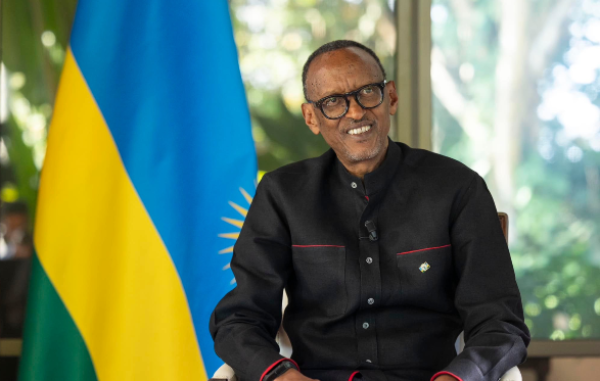
PREVIEW
A new report suggests the Rwandan government’s backers on X have been using Large Language Models to flood the platform
A coordinated online campaign promoting the Rwandan government’s projects and policies has been caught using Large Language Models (LLMs), including ChatGPT, and related Artificial Intelligence tools to mass-produce messages designed to simulate authentic support on X (formerly Twitter), according to a new report by Clemson University’s Media Forensics Hub. The campaign is also using these new methods to flood X with attacks on Rwanda’s critics, the report by the South Carolina university says. The target audience for the campaign covers countries in the region and in Europe as well as citizens in the country. Rwanda is holding elections on 15 July in which President Paul Kagame is likely to win by another landslide (AC Vol 65 No 13, A landslide victory foretold, again).
X forbids the use of LLMs on its platform. No action has been taken against the suspect accounts, we understand, but whether they are under investigation or not is unclear. In February, Africa Confidential reported that Kigali was working with a self-described ‘white hat hacker’ Jonathan Scott and the Milad Group. Based in Washington DC, Scott claims to have worked on cyber security for the Moroccan government (AC Vol 65 No 2, Kigali taps US hacker for new fight with Rusesabagina).
Before use of LLMs was widespread, mass postings regurgitating government talking points were regularly excised from X, which employs techniques for flagging identical posts and coordinated accounts. The use of LLMs has enabled the pro-Kigali network to reproduce the content of the message being promoted but without using the same phrasing, thus reducing their chances of being detected by X’s monitoring software. The sentiment is the same, but the words are different. The LLM massively reduces the time needed for the task.
The Clemson University researchers say the pro-Rwanda network has been using LLMs and AI tools to crowd out, by sheer numbers, posters and messages critical of the government, as well as generate apparently independent messages in Kigali’s favour.
The research analyses the online response to public controversy affecting the Rwandan government’s reputation since the beginning of the year by pro-Rwanda posters, which included efforts to divert the discussion from criticisms of Rwanda’s support of the M23 militia in eastern Congo-Kinshasa and of President Kagame. This was often done by emphasising the successes of the many sports teams the government sponsors, such as the football teams Arsenal, Bayern Munich and Paris Saint-Germain.
These accounts, which nearly all remain active, have also produced thousands of messages responding to the ‘Rwanda Classified’ investigation into the death of Rwandan journalist John Williams Ntwali (AC Vol 64 No 3, Journalist death prompts criticism). He died in a traffic collision in circumstances pointing towards Rwandan government responsibility, according to the investigators from Forbidden Stories, a consortium of journalists and publishers including the London Guardian, Paris-based daily Le Monde and Hamburg’s Die Zeit.
The new report analysed 464 accounts responsible for posting 650,000 messages since the beginning of the year, which have grown in number as the year progressed. Many of the accounts are still active. Just over half the messages were devoted to supporting Rwanda’s position on the conflict in Congo-K, where Kagame is accused of sending his troops, as well as supporting M23.
Posts repeatedly accuse the Kinshasa government of collaborating with the mainly Hutu Forces démocratiques de libération du Rwanda (FDLR) militia in eastern Congo, which is accused of links with the perpetrators of the genocide in Rwanda.
Visual imagery, which often combines generative templates with more labour-intensive photoshopping, was also deployed at scale. The would-be Rwandan presidential candidate Victoria Ingabire, for example, had her face seamlessly superimposed on that of a militia fighter shouldering a machine-gun.
Another highly pejorative image of a meeting of anti-Rwanda activists had the appearance of being automatically generated by AI, a commentator said.
The use of AI was revealed by mistakes the posters made. They accidentally included the commands given to ChatGPT, and its answer. One answer went, ‘Sure, here are 50 content ideas for thanking RPF Inkotanyi with the hashtag #ThanksPK at the end of each.’
The inauthenticity of the account behaviour was made clear by the patterns of posting and coordinated use of hashtags.
Specific aims varied. In one themed campaign, different posters had the job of attacking the Burundian army’s alleged collaboration with the FDLR in Congo-K. Most of the posters operate private accounts but used the automatically generated messages.
This was indicated in part by the fact that most of the in-network messages went out during normal working hours, with fewer on weekends, indicating the posters produced the messages during day jobs.
Other than the integration of these new tools, analysts saw nothing surprising in the online campaign apparently co-ordinated by actors aligned with the government in Kigali, as the government there has been highly active on digital propaganda and on social media. They added that the removal of accounts involved in coordinated behaviour could have reputational effects and could limit the capacity of the network to distract from criticisms.
Copyright © Africa Confidential 2024
https://www.africa-confidential.com
Prepared for Free Article on 09/07/2024 at 22:40. Authorized users may download, save, and print articles for their own use, but may not further disseminate these articles in their electronic form without express written permission from Africa Confidential / Asempa Limited. Contact subscriptions@africa-confidential.com.

